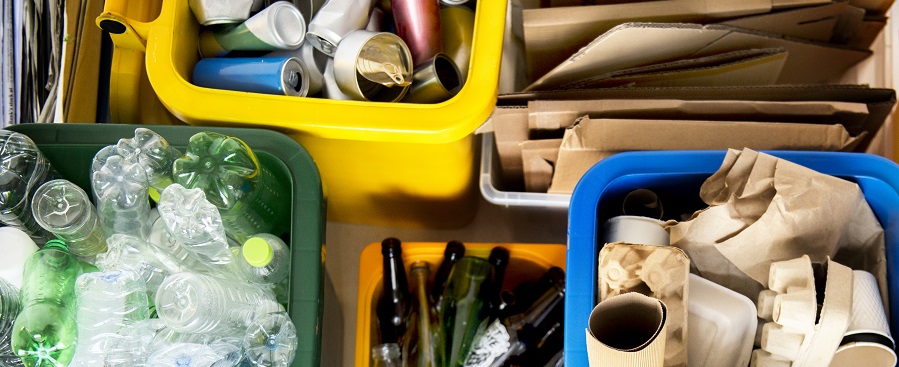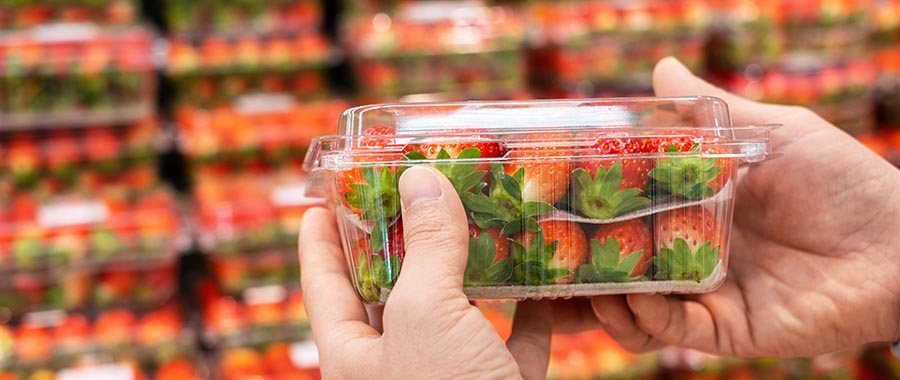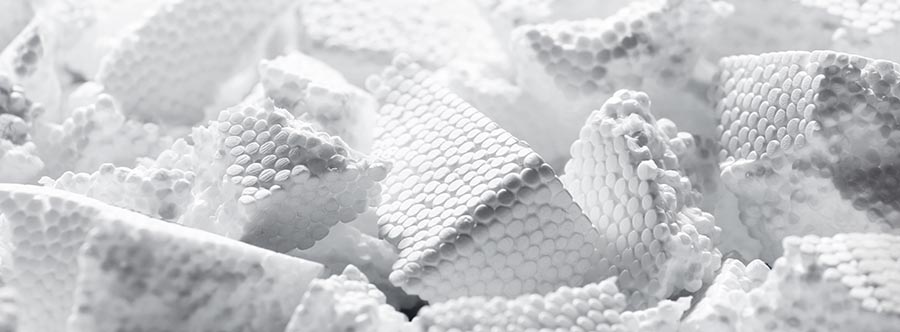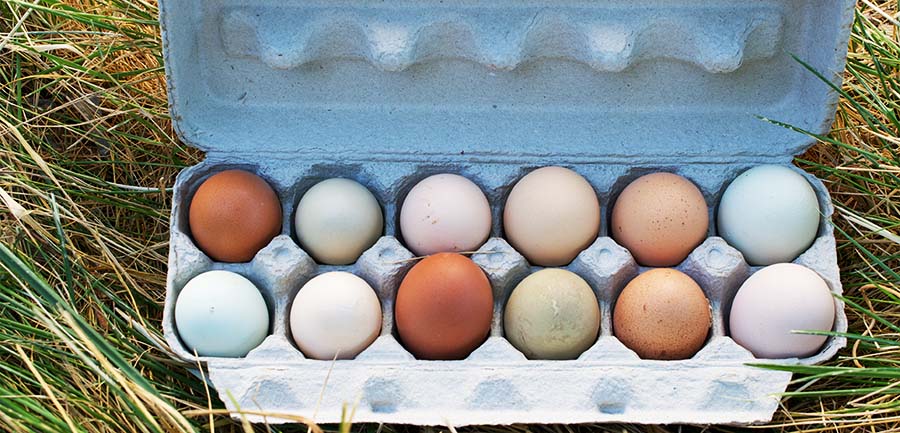Things You Think You Can Recycle But Can't

How do you know what to recycle? Do you have a list of what’s accepted through your curbside program? Or are you involved in the practice of “wishcycling,” where you optimistically assume certain things are recyclable?
Unfortunately, the plastic numbers you're accustomed to seeing are NOT a good indicator of recyclability. Knowing the common things you can’t recycle is the best way to rid your blue bin of contaminants.
Recycling: An Imperfect System
Between China’s 2018 National Sword policy ban, and bans from other countries, there’s a smaller market for recyclables. Add high contamination rates of recyclable goods being mixed with non-recyclables and the U.S. hovers around a disappointing 32% recycling rate. Recycling specifically plastics is even worse. In 2021, the United States had a dismal 5% recycling rate for post-consumer plastic waste.
But if something has a plastic recycling symbol, doesn't that mean it can be recycled? Unfortunately no, they were developed as a marketing tactic. The plastics industry spent tens of millions of dollars to develop the numbers and misleadingly promote that each number can be easily recycled. Their tactics have been compared to the tabacco industry perpetuating the myth that cigarettes do not cause harm to human health.
But, the problem with plastics is that there are thousands of different types each which include chemical additives and colorants that cannot be recycled together. This makes it impossible to sort the trillions of pieces of plastics into separate types for processing. What's more is that recycling plastic, when it's even possible, is dangerous and toxic to workers and neighboring communities. Additionally, recycled plastic costs more than virgin plastic and plastics are not inert. For example, they can absorb the chemicals they're being used to package.
Some types of plastic like PET and HDPE (plastic #1 and #2) have a better chance of being properly recycled. While we can still toss something like a PET juice bottle in the recycling bin, knowing what you can’t recycle is equally important—especially because it's likely more than you think.
14 Items You Think You Can Recycle But Can’t
Straws
Can you recycle straws? While straws are usually made from recyclable materials, they’re often banned for a reason.
Because they’re too lightweight to make it through mechanical sorters at recycling facilities, they’re not accepted in curbside recycling programs. They can slip through the cracks, jamming the sorter, and make huge problems for materials recovery facilities (MRFs). Skip the straw completely or choose home compostable and marine degradable straws for a more sustainable choice.
Shredded paper
Paper and paperboard account for 67% of total municipal solid waste recycled and are one of the easiest materials to reuse. So can you recycle shredded paper? Unfortunately, shredded paper is not recyclable for many of the same reasons as straws.
Shredded paper presents challenges during the sorting process because the paper is typically washed to be transformed into a pulp before it’s spread on large screens to dry. When the paper is already in small shreds, it makes it difficult for it to stick to screens, oftentimes passing through as a clumpy mess.
Blister Packaging

It's clear and it's plastic, so can you recycle blister packaging? While technically a rigid plastic, blister packs can’t be recycled.
They’re often made by layering different materials like aluminum foil, paper, and plastic #3, or polyvinyl chloride (PVC), which is one of the most difficult types to recycle. Also, it's challenging to separate and process the packaging because of this layering.
Plastic Produce Containers

For smoothie lovers asking: can you recycle produce containers? We’ve got some berry bad news. Plastic produce containers also referred to as clamshells, aren’t as easily recyclable as they appear.
While made with #1 plastic, clamshells are notorious contaminants in recycling systems. Their labels are attached with difficult-to-remove adhesives, and they’re also a different density. When heated with other #1 plastics, they’re prone to melting, causing ash, and ruining the entire batch. These should never be tossed in the recycling bin.
Fortunately, compostable produce containers exist, as well as, paper produce containers which are recyclable.
Pizza Boxes
Can you recycle pizza boxes? For decades, consumers have been told not to recycle pizza boxes. This was due to contamination by grease, cheese, and sauce.
While many curbside recycling programs have changed their minds to now accept pizza boxes regardless of food residue, check with your local municipal recycling facility. Alternatives to cardboard also exist in compostable pizza boxes that result in crispier, hotter, more delicious pizza.
Milk Cartons
Like pizza boxes, how milk is packaged has made its recyclability confusing. So, can you recycle milk cartons? Made of paperboard, many assume these are recyclable.
Unfortunately, many milk cartons are lined with plastic or wax. Because multiple materials are used, it makes separating them very costly, leading many MRFs to exclude milk cartons from their accepted list. Check your local MRF for their policy.
Paper Cups
Around 16 billion coffee cups are used every year in the US. So then, can you recycle paper cups? No, paper coffee cups are rarely accepted.
So, why are paper coffee cups bad for the environment? Well, to keep hot beverages hot and the paper cup intact, a plastic lining coats the inside of most paper cups. While the plastic typically just accounts for around 5% of the total cup, just that small amount makes a big difference, resulting in two different materials that are difficult to separate in order to properly recycle.
Plastic Bags
Why are plastic bags bad for the environment? One reason is their lack of recyclability.
Since they’re made from HDPE and LDPE, plastics #2 and #4, you might wonder, can you recycle plastic bags? While the materials certainly are, the lightweight nature of plastic bags make them difficult to recycle. Often getting caught in the recycling equipment, many MRFs will throw away the entire contents of a recycling bin if they spot plastic bags.
Aluminum Foil
Aluminum is infinitely recyclable, so can you recycle aluminum foil? Unfortunately not. Although it’s made from the same material as easy-to-recycle soda cans, they’re often contaminated with food waste or combined with plastic in drink boxes, yogurt tops, and candy wrappers.
Because of the risk of contamination, most curbside recycling programs do not accept aluminum foil. That said, consider a fiber catering tray with a lid instead of foil for your next catering order or delivery.
Foam/Polystyrene

Foam is made with #7 plastic. So, can you recycle foam? Unfortunately, polystyrene or expanded polystyrene (EPS) is a recycling nightmare and a reason why foam cups are bad for the environment.
While foam does keep drinks insulated, the very lightweight material is also composed of more than 90% air, making it bulky, difficult to transport, and not very cost-effective when it’s recycled. While a few recycling locations do accept Styrofoam, it is very rare so check with yours.
Kids’ Toys
Considered the most plastic-intensive industry in the world, the toy industry uses a whopping 40 tons of plastic for every $1 million in revenues. Since 90% of toys are made with plastic, many ask can you recycle kids' toys?
Like many other products on this list, kids’ toys are made with plastic that, in theory, is recyclable. However, toys are made from multiple components, often including electronics that could wreak havoc in an MRF. Many pieces are also very small and could get jammed in the sorting machines. That said, toys should never be placed in the recycling bin.
Bubble Wrap
It's made of plastic that’s technically recyclable but can you recycle bubble wrap? Unfortunately, bubble wrap experiences the same fate as plastic bags.
Made with LDPE (plastic #4) film, bubble wrap is extremely thin, meaning it can get tangled with other recyclables or the machinery at MRFs. Throw it in the trash.
Paper Towels & Napkins
As the world’s top consumer, Americans go through roughly 13 billion pounds of paper towels every year. So what kind of impact does our paper product obsession have—and can you recycle paper towels and napkins?
Napkins and paper towels are commonly contaminated with food or chemical residue, and their extremely short fibers make them very difficult to recycle. Fortunately, compostable, unbleached dinner napkins made with recycled material provide a greener way to wipe up after dinner.
Egg Cartons

While the answer is a clear NO for those made with foam, many egg cartons are made with paper and plastic.
Most paper egg cartons are made with recycled paper, but no longer contain material that can be easily recycled. Fortunately, they are compostable. As far as plastic egg cartons, they’re difficult to recycle and not accepted through most curbside systems but check locally.
Final Thoughts on Things You Can’t Recycle
When it comes to things you can’t recycle, this list demonstrates that recycling isn’t as environmentally-friendly as the plastics industry has led us to believe. That’s why we’d like to add another R to the list: Reduce, Reuse, Recycle, and Review. Take time to think about the items you're using and consider replacing difficult-to-recycle cups, bags, boxes, and containers with reusable or compostable alternatives.

